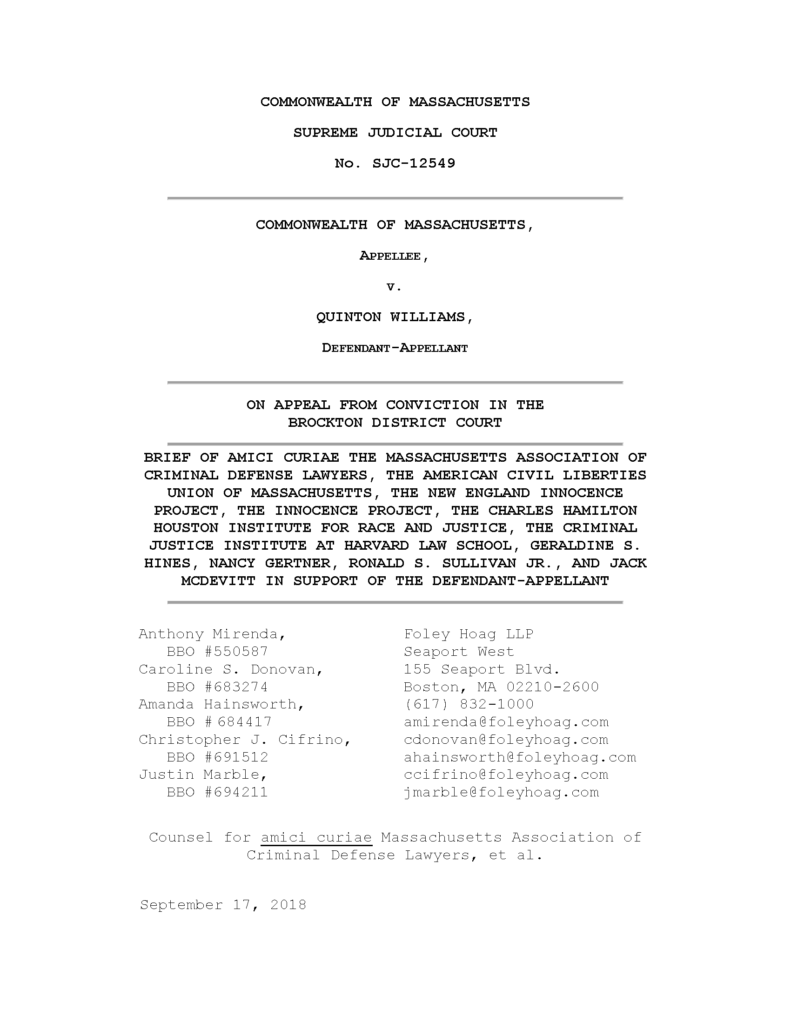The Houston Institute was proud to join an amicus brief in this case along with the Massachusetts Association of Criminal Defense Lawyers, the Massachusetts ACLU, the New England Innocence Project, the Innocence Project, the Criminal Justice Institute at Harvard Law School, and colleagues including Hon. Geraldine Hines, Hon. Nancy Gertner, and Ronald Sullivan Jr. The brief was authored by attorneys at Foley Hoag LLP. We helped to research social science and public opinion studies exploring patterns of discrimination and disparate treatment on the basis of race in the criminal legal system.
Information on the case, Commonwealth v. Quinton K. Williams, is available here:
https://www.ma-appellatecourts.org/display_docket.php?src=party&dno=SJC-12549
Read our coalition’s brief below:
Watch the oral argument here:
“In a drug prosecution, whether the trial judge erred by allowing the Commonwealth’s challenge for cause of a prospective juror who expressed the view that the criminal justice system was unfair to young African-American males.”
Maria Cramer, Boston Globe
September 19, 2018
Read the Article“Jurors who express understandable concern about whether our justice system is actually just shouldn’t be treated worse than anybody else,” said Matthew Segal, a staff attorney with the American Civil Liberties Union of Massachusetts, which joined in a brief filed by the Massachusetts Association of Criminal Defense Lawyers in support of Williams. “The implications are really serious and damaging.”
The brief cites an NBC News exit poll conducted during the 2016 presidential election that found that 82 percent of black voters believed the criminal justice system was unfair to African Americans.
“If this court were to hold that expressing this viewpoint justifies a for-cause dismissal of a juror, the result would be that a disproportionate number of minority jurors will be excluded from the jury pool,” attorneys from the Boston-based firm Foley Hoag wrote in the brief.
